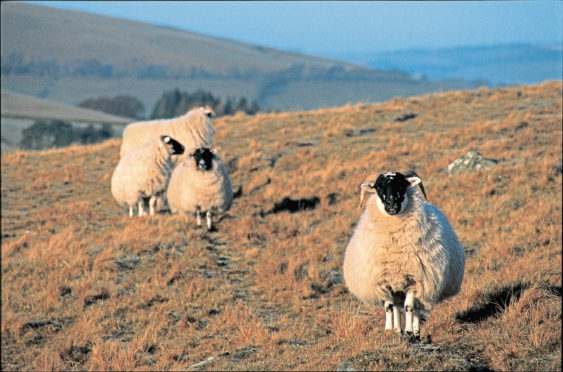Scientists and vets have identified the risk of a heightened liver fluke challenge this winter and are urging sheep farmers to consider testing for the disease.
The hot summer reduced the impact of the problem across the country, but the team involved in a Livestock Health Scotland study of 10 flocks, which normally face significant fluke challenges in a hotspot in Argyll, have warned farmers against being complacent and suggest the wet late summer and autumn may have given the parasite a lifeline which could trigger late infection.
LHS chairman Nigel Millar said the sun and low rainfall in early summer appeared to have broken the normal fluke challenge.
“The results so far are a good news story, evidence of an atypical year of sunshine. That said, with some producers routinely treating sheep for fluke in the autumn to avoid clinical liver fluke disease, it is possible that doses were administered before infections were established. Late infections may break through in these flocks,” he said. “Screening will continue across the 10 flocks and stronger indications of the level of late infection may emerge.
“Those that have dosed early might discuss, with their own vet, the value of screening some ewes in January to ensure late infection is not building in their own flock.”
Alison Barr, of Dalriada Vets in Lochgilphead, added: “Recent feedback from farms is that ewes are in fit condition, but we would urge flock masters to be vigilant and if in doubt about whether to dose or not to dose, speak to your vet and consider having samples analysed.”
Moredun scientist Philip Skuce added: “It is all too easy to assume or guess the extent and timing of peak fluke challenge and what products may or may not be most effective.
“Our work in Argyll serves to reinforce the merits of regular monitoring and testing, as no two farms or years are the same.”
